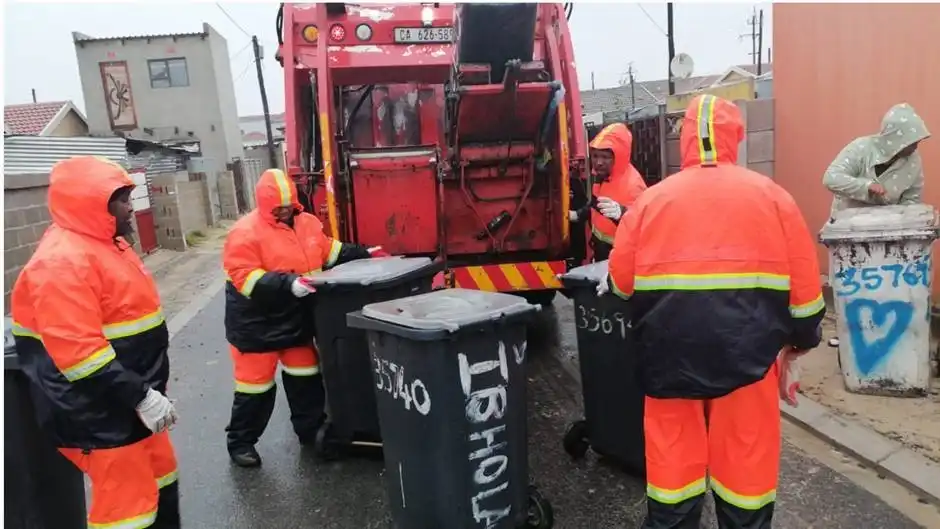Cape Town: The City is all set to launch a 6-month pilot project in Dunoon to increase the refused collection from once a week to three times a week to combat illegal dumping and improve environmental outcomes, effectively from September 01, 2024.
Reportedly, Urban Waste Management Directorate of City of Cape Town is kicking off a six-month pilot project in Dunoon to test the impact of increased refuse collection on levels of dumping in areas with high concentrations of ‘backyarder’ rentals.
And, if increased refuse collection reduces dumping, will achieve better environmental outcomes, as the city will consider rolling it out to other areas with similar densification challenges.
Effectively from September 01, 2024 the refuse collection in Dunoon will begin increasing from once a week to three times a week – on Mondays, Wednesdays and Fridays.
The project is a temporary change, that aims to test the impact of increased service frequency on levels of dumping in the area and if increased services result in less waste affecting the downstream environment.
Dunoon is currently experiencing the intensive illegal dumping linked to extreme population density, with knock-on effects on community health and the environment. After a six-month period the City will assess the impact of the increased services to decide if this can be continued or expanded to other areas with similar densification challenges.
Addressing the challenges of densification, Dunoon, alike many other areas within Cape Town, is currently affected by extreme population density, with multiple families living together on one property in most of the cases.
The sudden drastic increase in population density has placed considerable pressure on refuse collection services, and the City’s indigent benefit offering.
Although the properties in Dunoon meet the criteria to qualify for indigent assistance under the City’s policies to receive one subsidised bin collection per household, once a week as many properties have been informally subdivided over the years.
It means that a single bin per property is no longer enough to contain the waste generated by the multiple households (mainly backyarders) that now share a property.
It has contributed significantly to the prevalence of illegal dumping in the community, alongside other contributing factors such as land invasions and perceptions in the community that littering creates or sustains jobs.
The City – Cape Town also hopes that increasing the frequency of refuse collection will create a cleaner and healthier living environment in Dunoon. Improved cleanliness is more than just an aesthetic enhancement; it can foster a greater sense of pride and ownership within the community.
Living in a clean environment and area can make a big difference to the mindset of residents and can inspire hope and belief that we can create a brighter future if we put in the effort together.
In addition, this intervention aims to protect downstream environments from pollution caused by litter. The stormwater network in Dunoon connects to the Milnerton Lagoon and ultimately flows out to Lagoon Beach.
Furthermore, illegally dumped litter, if not intercepted by the City’s cleansing programmes, can wash into these sensitive ecosystems.

